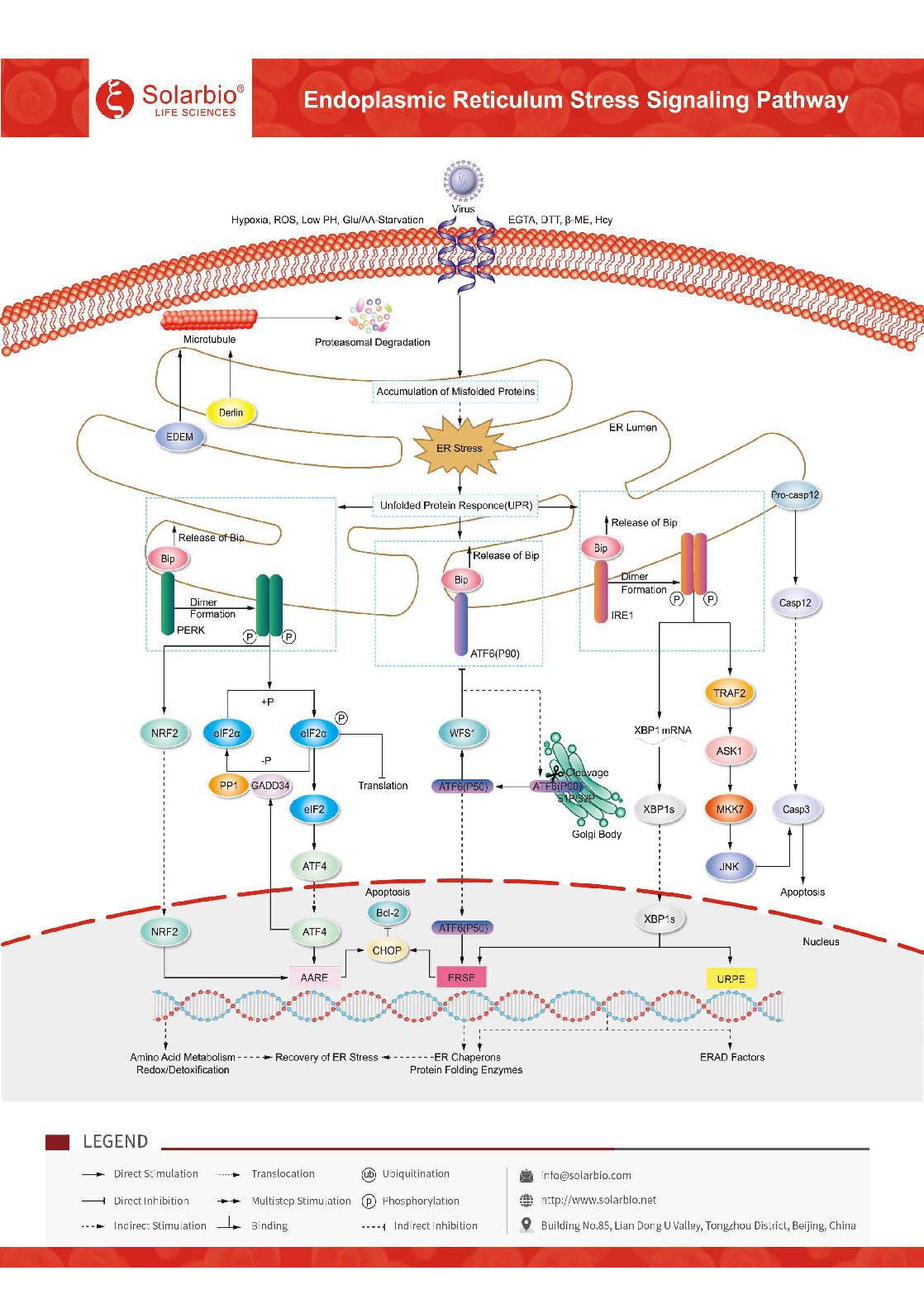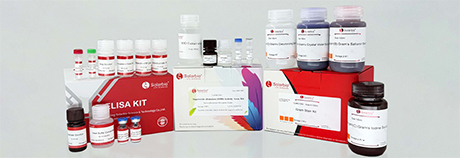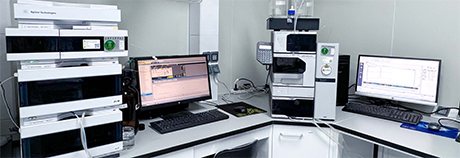Endoplasmic Reticulum Stress Signaling Pathway
Endoplasmic Reticulum Stress is the response of cells to misfolded and unfolded protein aggregation and calcium ion balance disorder in the endoplasmic reticulum cavity. The activation of signaling pathways such as UPR response (unfolded protein response), endoplasmic reticulum overload response and Caspase-12-mediated apoptosis pathway is a protective stress response of cells, which reduces the concentration of intracellular unfolded proteins in order to prevent the aggregation of unfolded proteins. UPR responses include ATF6, IRE1 and PERK: ATF6 significantly increases protein folding capacity in ER, while PERK and IRE1 reduce the folding load of ER by down-translating and degrading ER-binding mRNA, respectively. Endoplasmic reticulum stress is involved in the progression of various diseases and represents a ubiquitous etiological mechanism. Endoplasmic Reticulum Stress serves as a crucial defense mechanism in cells, enabling them to counteract endogenous and exogenous stress to the greatest extent possible. Stress can activate downstream signaling pathways, leading to the restoration of protein – folding function or cell death. In multicellular animals, persistent or intense Endoplasmic Reticulum Stress can trigger programmed cell death, or apoptosis.









